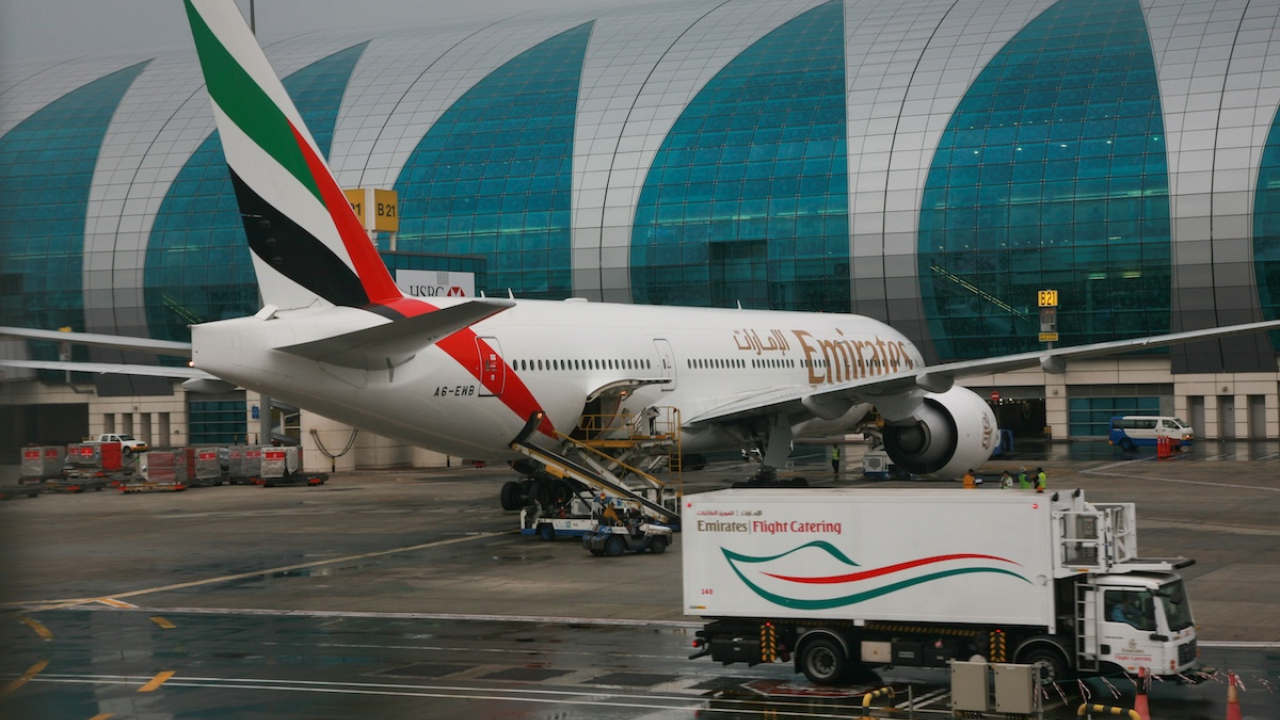Continued supply chain impact heads Middle East airline chief worries
Airline leaders in the Middle East point to an all-embracing impact of continued supply chain issues as one of the biggest challenges they are facing today. Graham Dunn reports from Jeddah.
Stephen Greenway, chief executive of Saudi Arabian low-cost carrier Flyadeal, speaking on the CEO panel at IATA’s Aviation Day Middle East North Africa in Jeddah on 7 May (photo: IATA).
During a wide-ranging panel session at IATA’s Aviation Day Middle East North Africa in Jeddah on 7 May, the chief executives of carriers in the region laid bare the extent to which the supply chain challenges, which have plagued the industry since the pandemic, are impacting their day-to-day business.
“It is a real issue,” said Stephen Greenway, chief executive of Saudi Arabian low-cost carrier Flyadeal. “I am probably spending about 30-40% of my time just ensuring the fleet works and getting aircraft through the door and so forth. For a CEO, that is an inordinate amount of time.”
He notes that while the delays in aircraft deliveries are the most visible impact, the issues cascade well beyond that.
“I have two aircraft in Toulouse without engines and I don’t know when I’m going to get them; spare parts are hard to come by; even getting one of our aircraft certified for ETOPS by the end of the year, I can’t get the oxygen tanks for the aircraft, line-fit or retroft.”
He adds: “It's May and I don’t know what my fleet is going to be for the summer peak at this moment in time. We hope to work that out in the next couple of weeks. We were meant to be getting two aircraft prior to the summer that would complete a full aircraft fleet to go into the summer, that’s just not happening.”
Neither does Greenway hold out hopes for a quick resolution to supply chain issues.
“Anyone who says it will go away by the end of the year doesn’t know what they are talking about,” he says. “This is with us for the next three-to-five years, minimum.”
Chief executive of Omani low-cost carrier SalamAir, Adrian Hamilton-Manns concurs and points to the challenge it creates, particularly for carriers that are looking to grow. SalamAir is looking to add 10 more Airbus A320s as it continues on a revamp which has seen it focus back on its core low-cost narrowbody operations.
“We need to get bigger quicker. But we are not going to be able to do that for three or four years. If we were a widebody operator, which we are not, we would not be able to get widebodies until about 2032, 2023. A waiting time of six years to fulfil a business plan you are looking at today is just impossible,” he said
This inability to ramp up creates issues in meeting the wider strategic goals of states in the region. Oman, like Saudia Arabia, has a transformation and economic diversification strategy, Vision 2040, of which tourism is a key pillar.
“How do you deliver Oman’s requirements for its aviation sector, if the OEMs aren’t enabling that?” asks Hamilton-Manns. “We’ve had a very visible issue with that this year in our civil aviation authority believing both ourselves and Oman Air are not going to have aircraft available to meet the demands of travel in the summer.”
This has prompted Oman’s aviation regulator to temporarily open up the market to foreign operators to fly domestic services during the summer peak. “That’s not a reflection of SalamAir’s abilities to carry passengers, or Oman Air’s,” he adds saying It’s a reflection of manufacturing not giving airlines what they need.
Leaders also flagged the fragmented regulatory environment, particularly around sustainability.
Gulf Air chief executive Jeffery Goh, for example, says that individual regulatory bodies need to recognise the industry is international.“For instance, I look at the regulations across the world on sustainability, reductions in greenhouse emissions, requirements for sustainable aviation fuel. It’s almost a repeat of what played out in Covid 19. Every country reacted it in its own way,” he said.
Mandates have this year kicked in for airlines serving the UK and Europe have this year requiring uplift of sustainable aviation fuel (SAF).
Stay up to date
Subscribe to the free Times Aerospace newsletter and receive the latest content every week. We'll never share your email address.

